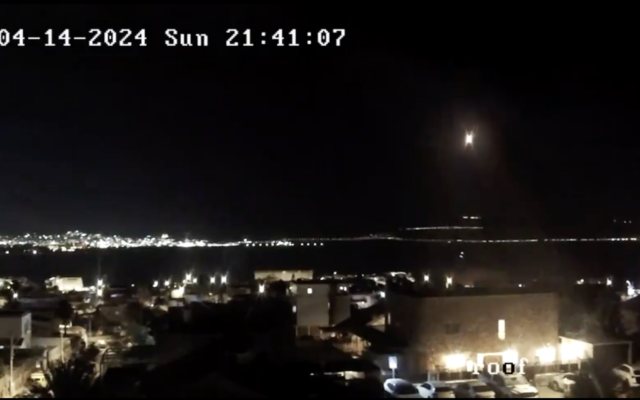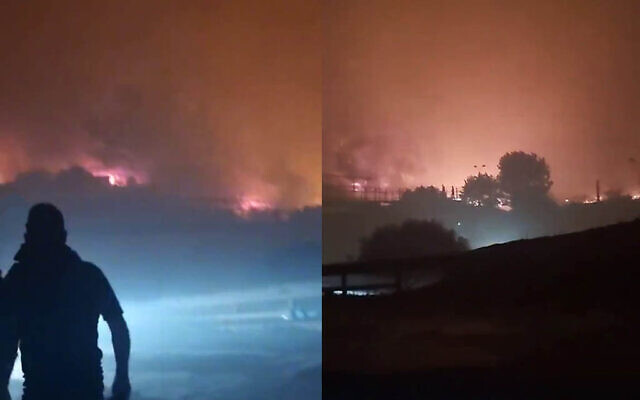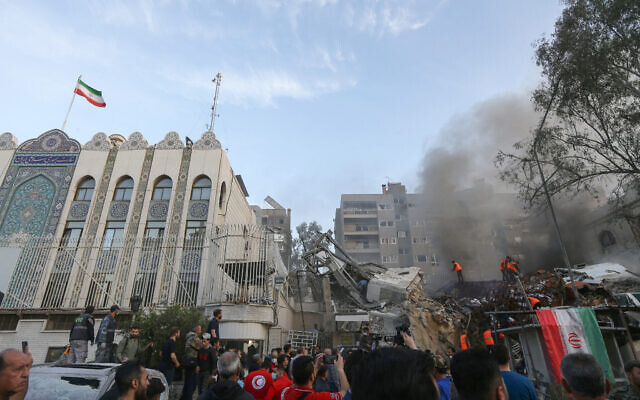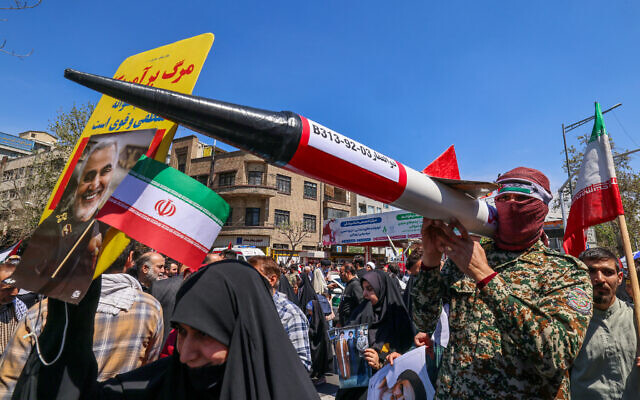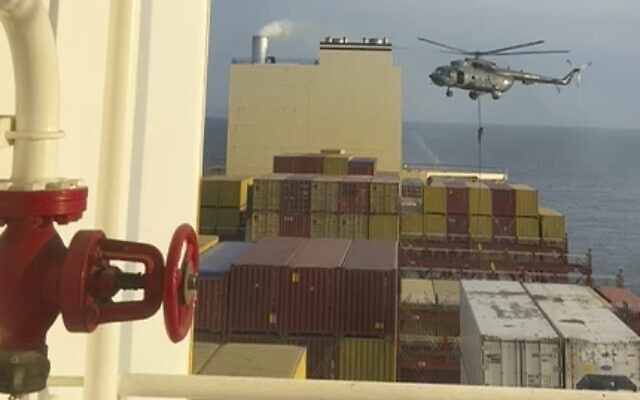1,400 Palestinian prisoners in Israel to launch hunger strike
Palestinian Authority says action to be taken in response to ‘very bad’ detention conditions imposed following jailbreak from Gilboa Prison last week
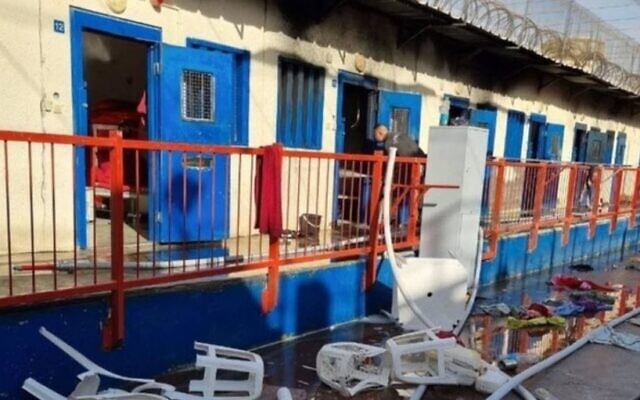
Almost 1,400 Palestinians held in Israeli prisons are set to go on hunger strike in protest of their detention conditions since a jailbreak last week, the Palestinian Authority said on Tuesday.
Tensions have been running high since six inmates staged a dramatic escape from a high-security jail in northern Israel on September 6, via a tunnel dug under a sink. Four of them have since been recaptured.
Hundreds of their fellow inmates were transferred to other jails and personal items confiscated in searches carried out by guards, according to the Palestinian Prisoners’ Club.
“The situation is very bad in the prisons, that’s why they’re going on hunger strike,” Qadri Abu Bakr, head of the Palestinian Authority’s commission for prisoners, told AFP.
He said that 1,380 prisoners — out of more than 4,000 Palestinians held in Israeli jails — were to start the strike action on Friday, to be joined by other inmates next week.
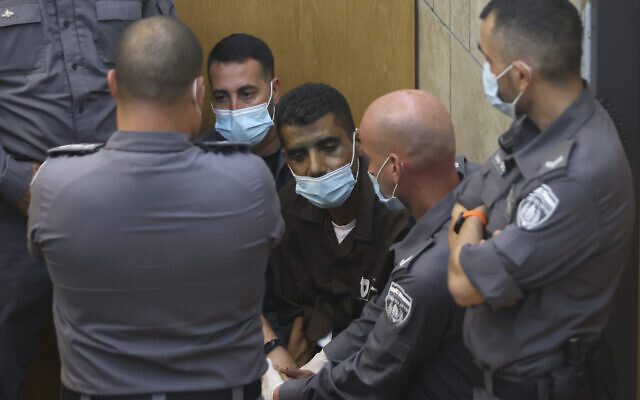
Abu Bakr added that talks between the Israeli prison authorities and prisoner representatives had made no progress so far.
The Palestinian Authority last week likened Israel’s restrictions on prisoners to “Nazism.” The allegation by the PA, which is regularly accused of torturing inmates, came after Palestinian security prisoners rioted in a number of Israel jails and set fire to nine cells in the Ketziot and Ramon prisons in southern Israel. Israeli forces moved to quell the unrest.
The Red Cross has said that Israel has decided to allow visits to prisoners, after they were suspended last week.
But Abu Bakr expressed concern over the fate of the four recaptured escapees, who the Red Cross has not been allowed to visit.
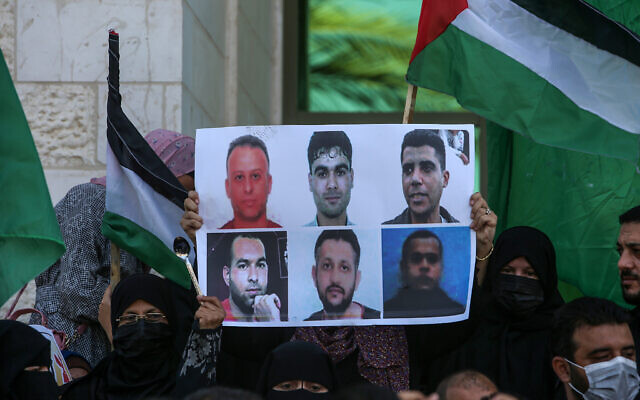
Palestinian lawyer Khaled Mahjana told AFP that he would meet two of the four — Yaqub Qadri and Mohammad Ardah — on Tuesday evening.
Abu Bakr also expressed fears for the health of another recaptured fugitive, terror commander Zakaria Zubeidi, after social media reports that he had been sent to hospital.
Prison authorities said on Monday that he was still in custody and had not been hospitalized.
Zubeidi, a notorious commander in Fatah’s Al-Aqsa Martyrs Brigade terror group, was in prison while on trial for two dozen crimes, including attempted murder.
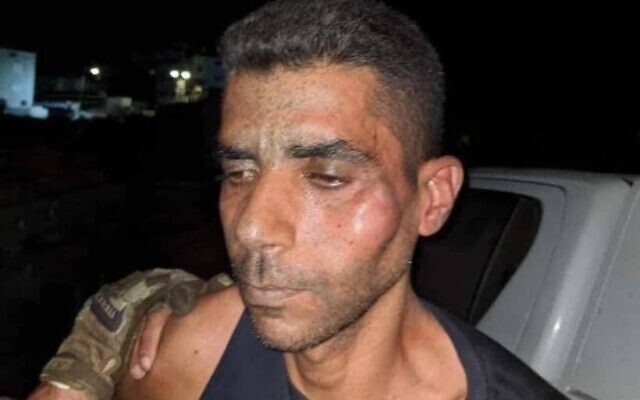
Among the Palestinians, the fugitives have been widely regarded as “heroes” who succeeded in freeing themselves from multiple life sentences.
The manhunt continued on Tuesday for the remaining two prisoners: Iham Kamamji and Munadil Nafiyat, both of whom are members of the Islamic Jihad terror group.
Kamamji was serving a life sentence at the time of his escape, for killing an 18-year-old Israeli in 2006, a murder he reportedly expressed pride in. Nafayat has not been charged with a crime. He was being held under Israel’s practice of administrative detention, which allows it to imprison suspects without filing charges. Nonetheless, he has been claimed as a member of Islamic Jihad. Belonging to the terror group is illegal under Israeli military law.
The six escaped from Gilboa Prison in the predawn hours last Monday, making their way out through their cell’s drainage system and an empty space underneath the prison.
The escape exposed a series of failures at the prison, and Public Security Minister Omer Barlev said on Thursday that he had decided to form a government commission to probe the incident.
Among the apparent lapses were failure to learn lessons from previous escape attempts and several operational blunders, including unmanned watchtowers and sleeping guards.




